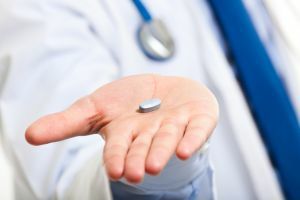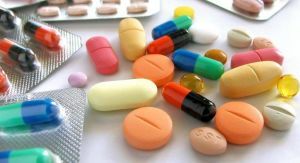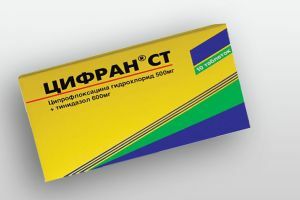 Implantation of teeth is a complex process that involves surgical intervention. To reduce the recovery period, to avoid the development of complications and the appearance of an inflammatory process, and to minimize the probability of rejection of the implant, many specialists prescribe antibiotics to their patients after the operation.
Implantation of teeth is a complex process that involves surgical intervention. To reduce the recovery period, to avoid the development of complications and the appearance of an inflammatory process, and to minimize the probability of rejection of the implant, many specialists prescribe antibiotics to their patients after the operation.
A number of doctors believe that antibiotics should be taken the day before the implantation procedure. So is it necessary to take antibiotics before the operation and during the recovery period?
Contents of
- Do antibiotics be required before, during and after implantation?
- What exactly can a doctor prescribe?
- How are the preparations selected and how are they taken?
- There are cases when without medical assistance in any way. ..
Do antibiotics be needed before, during and after implantation?
Reception of antibiotics after implantation of teeth is one of the most important stages of the recovery process. This is due to the fact that dental implantation is a serious surgical intervention that provokes a periodontal trauma.
Internal organs become open to microorganisms that can harm the body. Antibiotics are an important element of successful treatment in the rehabilitation period.
But until now the need for antibiotics for dental implants is a controversial issue. Many dentists recommend starting to take medications already the day before the operation. Or start the reception on the same day. This will avoid complications.
When prescribing antibiotics, the doctors pursue the following objectives: 
- to block the development of inflammation in the place where the operation was performed;
- speed up the healing process.
Medication is not prescribed if the intervention was minimal.
What exactly can a doctor prescribe?
In the course of implantation, antibiotics of the penicillin series are most commonly prescribed. They belong to the category of available drugs, they have a minimal risk of developing side effects. Such drugs have low toxicity.
In addition to the penicillin series, cephalosporins of the third generation are successfully used. They are popular due to their wide range of activities.
They show high activity in the fight against bacteria and harmful microorganisms. Medical experts select individually.
The main drugs that are prescribed after implantation are:
- Cyfran ST is an antimicrobial agent of complex action. Most often it is prescribed after a complicated removal or dental implantation. The medication is necessary for patients who have undergone surgical intervention on soft tissues of the oral cavity.
- Flemoxin is a remedy from the penicillin series. It is resistant to acid and various bacteria. The spectrum of the drug is very wide. Most often it is prescribed for infection of the mucous membrane.
- Lincomycin is a drug that has a devastating effect on bacteria in the oral cavity. The components of the drug do not accumulate in bone tissues. The right concentration immediately goes to the desired place, to the root of the tooth. This antibiotic is prescribed in the formation of fistulas, abscesses.
 The purpose of a particular antibiotic depends on the complexity of the operation and the possible consequences. According to research, complications with classical implantation are very rare.
The purpose of a particular antibiotic depends on the complexity of the operation and the possible consequences. According to research, complications with classical implantation are very rare.
Based on these data, the administration of medication is not mandatory. Mandatory prescribe drugs, if the surgical procedure was performed with complications, or was prolonged.
How are the preparations selected and how are they taken?
All preparations are selected individually depending on the specific case and severity of the disease, and only after carrying out laboratory studies of patient analyzes.
Many antimicrobial agents have many side effects and contraindications. Therefore, it is important to know all the individual characteristics of a person.
Antibiotics are taken with meals. This provides a faster suction. Do not exceed the dosage set by your doctor. It is necessary to strictly observe the terms of the course of treatment and dosage. 
From the reception of antibacterial drugs may occur side reactions:
- reactions of an allergic nature;
- intestinal disorders, development of dysbiosis;
- appearance of fungal diseases.
There are cases when without medical assistance in any way. ..
Antibiotics are often prescribed in order to improve the survival of the implant. But most experts are concerned that excessive use of such drugs causes a person resistance to bacteria. In which cases during the procedure of implantation, is it necessary to take antibacterial drugs?
 Based on the research results of scientists it was proved that antibacterial drugs really play a big role in restoring the oral cavity after surgical intervention. In patients who took antibiotics, the survival rate of the implant was 100%.Those who did not take medication, this figure was 78%.
Based on the research results of scientists it was proved that antibacterial drugs really play a big role in restoring the oral cavity after surgical intervention. In patients who took antibiotics, the survival rate of the implant was 100%.Those who did not take medication, this figure was 78%.
Most specialists still adhere to the position that qualitatively and responsibly preparing a patient with good health for the procedure, you can avoid taking any medications. A healthy organism can recover independently, and taking antibacterial drugs will only reduce this ability.
But there are situations when the appointment of antibacterial drugs is mandatory. This occurs primarily in the event that the operation has passed with complications, or has lasted a long period of time.
Drugs are prescribed, if in the healing process in the patient's mouth there are suppuration, the development of the abscess begins. Be sure to prescribe antibiotics in the event that there is a deterioration in overall health, an increase in temperature.
The need for antibiotics before or during implantation is a strictly individual matter. Prescribe these drugs can only be the attending physician, based on the results of tests and the general condition of the patient.
